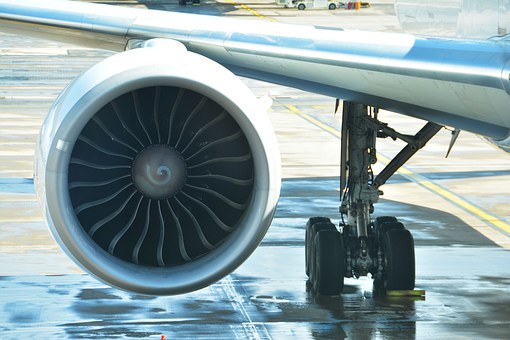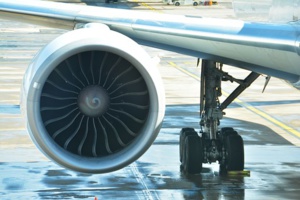The aerospace industry experts turn to Blockchain technology to reduce the maintenance cost of planes. Blockchain has the ability to gather information from multiple parties as a “single ledger”, which then are made accessible to the users as a “single record information”. In the “Paris Air Show”, Accenture’s “Aerospace and Defense” Head, John Schmidt, said:
“I really see this coming in, in a couple of years”.
Schmidt holds the maintenance of engines exemplary for airlines to avoid “wasteful work”. He also added:
“Through all that life cycle of the engine, the original parts, the replacement parts and configuration are all being tracked, and it is being done by a number of different companies.
“Blockchain is in effect a single federated ledger that everybody who uses and touches that engine could use it as a single point of truth of what has happened to the engine”.
According to Schmidt the engineers with the help of blockchain data will be able to configure, and know the “parts list, and usage data” of a plane in a precise manner without ever working on it, whereby at present, the maintenance team manages only “macro factors” like the duration of engine usage. In his words:
“The reality is an engine has high-pressure and low-pressure usage and each of these may impact the true number of cycles the engine has achieved in its life”.
As per the current trend, busy engineers get airplane contract “just because they have previously worked on the same engine”, notes the “aviation consultant”. On the other hand, Blockchain, providing “a wealth of information”, will allow “less busy” maintenance crews also to secure contracts. He said:
“My inclination would be to use a shop that has already worked on the engine, but that shop may have a 30-day backlog.
“With blockchain, you can look at what other options might be available”.
Although Accenture shows full support blockchain, other “airlines, plane manufacturers, and service contractors” are yet to be convinced, as Schmidt informs:
“It is something we can see clearly in terms of the benefits and we effectively have a patent pending on how to leverage blockchain in the aftermarket.”
References:
www.cnbc.com
“I really see this coming in, in a couple of years”.
Schmidt holds the maintenance of engines exemplary for airlines to avoid “wasteful work”. He also added:
“Through all that life cycle of the engine, the original parts, the replacement parts and configuration are all being tracked, and it is being done by a number of different companies.
“Blockchain is in effect a single federated ledger that everybody who uses and touches that engine could use it as a single point of truth of what has happened to the engine”.
According to Schmidt the engineers with the help of blockchain data will be able to configure, and know the “parts list, and usage data” of a plane in a precise manner without ever working on it, whereby at present, the maintenance team manages only “macro factors” like the duration of engine usage. In his words:
“The reality is an engine has high-pressure and low-pressure usage and each of these may impact the true number of cycles the engine has achieved in its life”.
As per the current trend, busy engineers get airplane contract “just because they have previously worked on the same engine”, notes the “aviation consultant”. On the other hand, Blockchain, providing “a wealth of information”, will allow “less busy” maintenance crews also to secure contracts. He said:
“My inclination would be to use a shop that has already worked on the engine, but that shop may have a 30-day backlog.
“With blockchain, you can look at what other options might be available”.
Although Accenture shows full support blockchain, other “airlines, plane manufacturers, and service contractors” are yet to be convinced, as Schmidt informs:
“It is something we can see clearly in terms of the benefits and we effectively have a patent pending on how to leverage blockchain in the aftermarket.”
References:
www.cnbc.com






